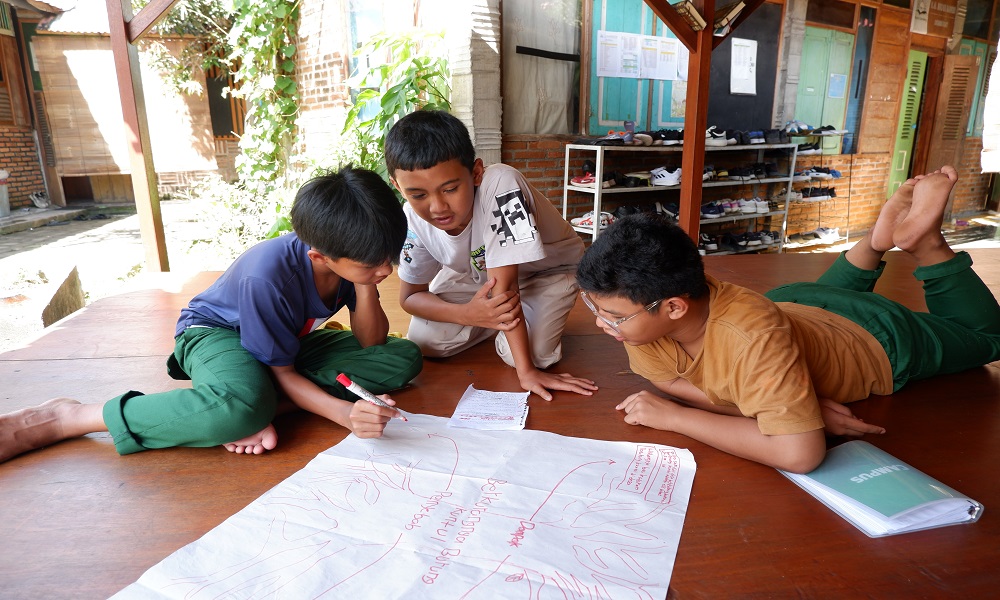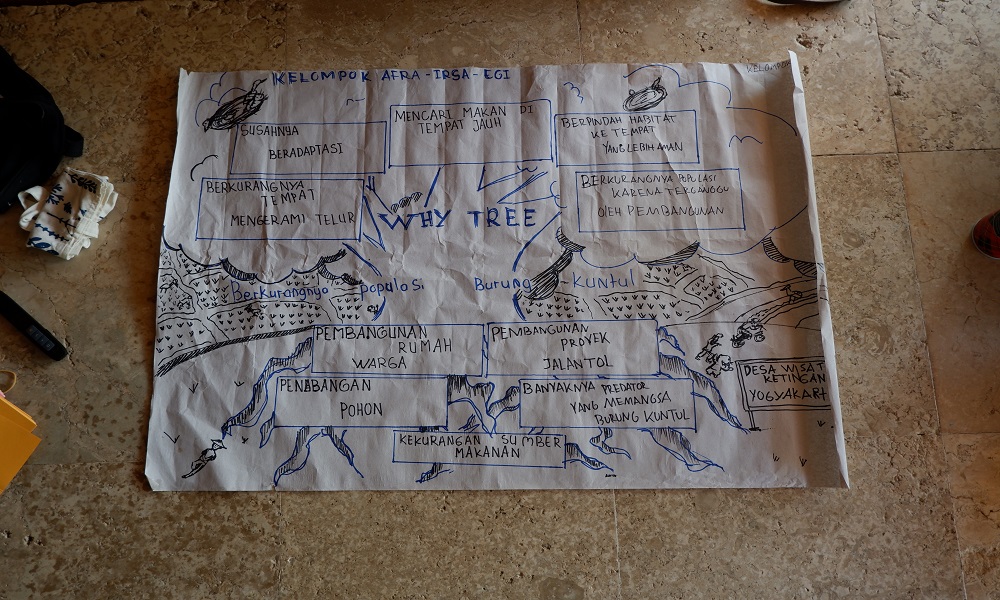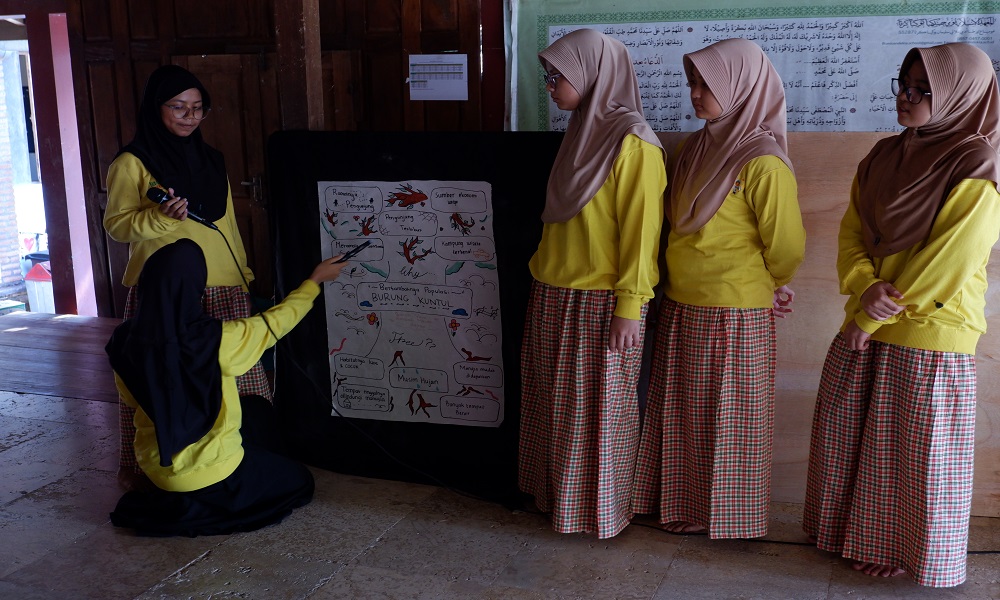
As part of an effort to strengthen climate change literacy among teenagers, Yayasan SHEEP Indonesia facilitated a discussion and field study involving 30 seventh-grade students from SMP Bumi Cendekia at the Ketigan Fauna Tourism Village. A key part of this field observation was the study of the egret — a bird species once commonly seen in the village skies, but now increasingly rare.
Through direct observation and community dialogue, the students discovered that changes in the village landscape, such as the construction of toll roads and deforestation, have had a significant impact on the egrets’ natural habitat. "We saw it ourselves — many trees were cut down and the land is now used for road construction. So the birds moved elsewhere because there's no longer a place for them to nest," reported Rehan, speaking on behalf of his group.

Beyond development issues, students also linked the decline in the egret population to climate change. In a discussion led by facilitator Evi Novita, one student, Naya, shared her thoughts: “Because of climate change, the weather is hotter than before. Maybe that also makes it harder for the birds to survive.” Through observing this phenomenon, students learned that rising temperatures, shifting seasons, and disrupted micro-ecosystems are real consequences of climate change.
The observation of the egret became a concrete learning experience for the students, helping them understand how climate change affects not only humans, but entire local ecosystems. The discussion deepened as students began to critically question the ongoing pace of development. “Why does development keep happening? Like building factories — doesn’t that damage the environment?” asked one participant.

This active engagement demonstrated that through real-life field observations, students are capable of connecting local phenomena with global issues such as climate change and environmental injustice. The activity concluded with a reflection session, where each student committed to taking concrete action. Representing Group 5, Dito shared, “If we stay silent, we’ll be the ones who suffer. The environment will be damaged, the air polluted, and animals will go extinct.”

